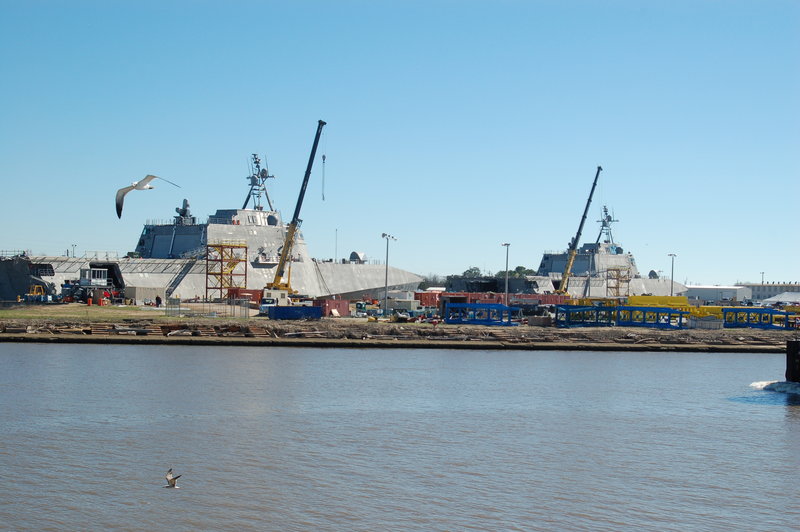The Tulsa (LCS 16), the eighth Independence-variant littoral combat ship (LCS) built by Austal USA, Mobile, Ala., successfully completed acceptance trials on March 8 in the Gulf of Mexico.
The Austal-built 419'x99' Independence-variant LCS is a high-speed, aluminum trimaran combat ship that is designed to combine superior seakeeping, endurance and speed with the volume and payload capacity needed to support emerging missions.
The following are the mission requirements of the aluminum trimaran LCS:
- Mine Warfare Module — Transforms the ship’s mission by embarking a self-contained package of 15 crewmembers, sensors and weapons to hunt, identify, localize and neutralize mines.
- Anti-Submarine Warfare Module — Transforms the ship’s mission by embarking a self-contained package of 15 crewmembers, sensors and weapons to detect, track and neutralize quiet diesel-electric submarines operating in shallow water.
- Surface Warfare Module — Transforms the ship’s mission by embarking a self-contained package of 12 crewmembers, sensors and weapons to search, detect, localize and engage small boats.
The LCS has a draft of 14', a marine crew of 40, a total crew of 110 and displaces 2,675 metric tons. The Tulsa’s main propulsion comes from twin GE LM2500 gas turbine engines, producing 29,500 hp, and two MTU 20V8000 diesel engines, putting out 12,200 hp total. The engines are connected to Wartsila waterjets that gives the LCS a running speed of 40 knots.
Cruising range is 3,500 nautical miles (4,500 nautical miles at cruising speed of 16 knots and 1,500 nautical miles at 36 knots or more.) Auxiliary equipment includes 32 vertical launch system missiles, 57mm forward gun, eight harpoon missiles, two close-in weapons systems, and six ASW torpedoes. The Tulsa has a 28,000-sq.-ft. mission bay and a flight deck capable of simultaneously holding two H-60 helicopters.
The trials involved the execution of intense comprehensive tests by the Austal-led industry team while underway, which demonstrated to the Navy the successful operation of the ship’s major systems and equipment. Acceptance trials are the last significant milestone before delivery of the ship. LCS 16 will be the second Independence-variant LCS delivered by Austal to the Navy in 2018.
“Littoral combat ships are just rolling off the assembly line at Austal, one after another in quick succession with each one better than the last,” Austal USA president Craig Perciavalle said in a prepared statement. “We handed LCS 14 over to the Navy at the end of February and now we’re ready to deliver the next one — a testament to the incredible shipbuilding team here at Austal USA along with General Dynamics Mission Systems and the many local and national suppliers whose commitment and hard work have played such an important role in accomplishing this milestone.”
Austal has delivered seven Independence-variant LCS, six of which are currently homeported at the Naval Base San Diego. The future Manchester (LCS 14) will leave Mobile soon and sail up to the Portsmouth Naval Shipyard, Kittery, N.H., where she’ll be commissioned before heading west to San Diego.
“We are excited to see all of the important contributions that our ships have been making to the fleet and we stand ready with capacity now to efficiently build the Navy our nation needs while being able to support an aggressive growth plan to a 355-ship fleet,” Perciavalle said.
The LCS program is at full rate production with several ships currently under construction at Austal including the Tulsa. Charleston (LCS 18) is preparing for trials, final assembly is well underway on Cincinnati (LCS 20) and Kansas City (LCS 22), and modules for Oakland (LCS 24) and the future USS Mobile (LCS 26) are under construction in the module manufacturing facility.




